第37章 AT COMPIEGNE(1)
WE put up at a big, bustling hotel in Compiegne, where nobody observed our presence.
Reservery and general MILITARISMUS (as the Germans call it) were rampant. A camp of conical white tents without the town looked like a leaf out of a picture Bible; sword-belts decorated the walls of the CAFES; and the streets kept sounding all day long with military music. It was not possible to be an Englishman and avoid a feeling of elation; for the men who followed the drums were small, and walked shabbily. Each man inclined at his own angle, and jolted to his own convenience, as he went. There was nothing of the superb gait with which a regiment of tall Highlanders moves behind its music, solemn and inevitable, like a natural phenomenon.
Who that has seen it can forget the drum-major pacing in front, the drummers' tiger-skins, the pipers' swinging plaids, the strange elastic rhythm of the whole regiment footing it in time - and the bang of the drum, when the brasses cease, and the shrill pipes take up the martial story in their place?
A girl, at school in France, began to describe one of our regiments on parade to her French schoolmates; and as she went on, she told me, the recollection grew so vivid, she became so proud to be the countrywoman of such soldiers, and so sorry to be in another country, that her voice failed her and she burst into tears. Ihave never forgotten that girl; and I think she very nearly deserves a statue. To call her a young lady, with all its niminy associations, would be to offer her an insult. She may rest assured of one thing: although she never should marry a heroic general, never see any great or immediate result of her life, she will not have lived in vain for her native land.
But though French soldiers show to ill advantage on parade, on the march they are gay, alert, and willing like a troop of fox-hunters.
I remember once seeing a company pass through the forest of Fontainebleau, on the Chailly road, between the Bas Breau and the Reine Blanche. One fellow walked a little before the rest, and sang a loud, audacious marching song. The rest bestirred their feet, and even swung their muskets in time. A young officer on horseback had hard ado to keep his countenance at the words. You never saw anything so cheerful and spontaneous as their gait;schoolboys do not look more eagerly at hare and hounds; and you would have thought it impossible to tire such willing marchers.
My great delight in Compiegne was the town-hall. I doted upon the town-hall. It is a monument of Gothic insecurity, all turreted, and gargoyled, and slashed, and bedizened with half a score of architectural fancies. Some of the niches are gilt and painted;and in a great square panel in the centre, in black relief on a gilt ground, Louis XII. rides upon a pacing horse, with hand on hip and head thrown back. There is royal arrogance in every line of him; the stirruped foot projects insolently from the frame; the eye is hard and proud; the very horse seems to be treading with gratification over prostrate serfs, and to have the breath of the trumpet in his nostrils. So rides for ever, on the front of the town-hall, the good king Louis XII., the father of his people.